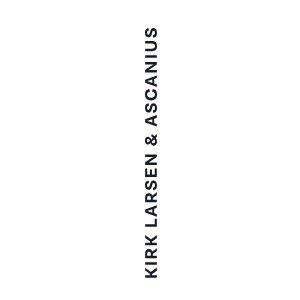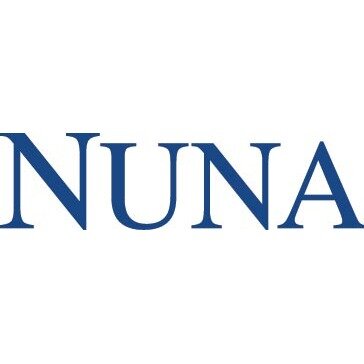Best Conveyancing Lawyers in Nuuk
Share your needs with us, get contacted by law firms.
Free. Takes 2 min.
Free Guide to Hiring a Real Estate Lawyer
List of the best lawyers in Nuuk, Greenland
About Conveyancing Law in Nuuk, Greenland
Conveyancing refers to the legal process of transferring ownership of real estate from one party to another. In Nuuk, Greenland, the conveyancing process is distinct due to Greenland’s unique land tenure system, which blends Danish principles with local regulations. Unlike many other places, much of the land in Greenland is publicly owned, and private ownership often consists of acquiring user rights or leases rather than full ownership. Navigating these differences is important for anyone looking to buy or sell property in Nuuk.
Why You May Need a Lawyer
People commonly seek legal help with conveyancing in Nuuk for several reasons. Buying or selling any kind of real estate can involve complicated legal documents, negotiations, and risk of disputes. A lawyer ensures that the transfer of property or use rights complies with local laws, that all documents are properly prepared and registered, and that both buyers and sellers are protected legally. You may need a lawyer if you are unclear about your rights, if you are buying property as a foreigner, if there are disputes about property boundaries, or if you need to negotiate the terms of a lease. Lawyers also help with clarifying fees, taxes, and the registration process for real estate transactions in Nuuk.
Local Laws Overview
The legal framework for conveyancing in Nuuk is largely derived from the Greenlandic Home Rule Act and specific Greenlandic statutes on land administration. Here are some key aspects:
- Most land is owned by the Government of Greenland. Individuals and businesses typically acquire long-term leases or user rights instead of outright ownership.
- All real estate transactions and leases must be registered with the municipality to be legally binding and enforceable.
- Foreigners face restrictions on acquiring user rights and may need government approval.
- Leases and user rights often include obligations and restrictions, such as building rules and maintenance requirements, which must be adhered to.
- Land and property disputes are typically handled by local courts under Greenlandic law, which can differ from Danish law in many respects.
Because of these unique features, both buyers and sellers are advised to work closely with legal professionals familiar with Greenlandic property law.
Frequently Asked Questions
What is conveyancing?
Conveyancing is the legal process of transferring property or legal rights over land and buildings from one person or entity to another.
Can I buy land in Nuuk as a foreigner?
Foreigners can acquire user rights or leases in Nuuk, but there are restrictions and a formal approval process by the Greenlandic government. Legal advice is highly recommended before proceeding.
What type of property ownership exists in Nuuk?
Most property rights in Nuuk are based on leases or user rights granted by the government. Outright private ownership of land is rare due to Greenland’s public land system.
What does a conveyancing lawyer do?
A conveyancing lawyer manages the legal aspects of real estate transactions, prepares and reviews documents, ensures compliance with local laws, and protects their client’s interests throughout the process.
How long does the conveyancing process take in Nuuk?
The time frame can vary depending on the complexity of the transaction and responsiveness of official authorities, but it generally takes several weeks to complete all legal steps and registrations.
Are there taxes or fees involved in buying property in Nuuk?
Yes, there are typically administrative fees for registration and sometimes property transfer taxes. Details depend on the nature of the transaction and any local regulations at the time.
What documents are needed for a property transfer?
Essential documents include the purchase agreement, proof of identity, land or lease certificates, and any approvals required by the government. Each case may require additional documentation based on circumstances.
Do both parties need to be present in Nuuk for the conveyancing process?
While it is often helpful, it is not always necessary for all parties to be present as representatives or lawyers can act on their behalf with proper authorization.
What happens if there is a dispute during the conveyancing process?
Disputes are generally resolved through negotiation, legal mediation, or, if necessary, in local courts under Greenlandic law.
Can I use a Danish lawyer for conveyancing in Nuuk?
It is possible, but strongly recommended to work with a lawyer who is knowledgeable about Greenlandic law, as there are significant differences from Danish property law.
Additional Resources
- Municipality of Sermersooq (Nuuk): Handles most local registrations and approvals related to property and user rights in Nuuk.
- Government of Greenland Land Administration: Oversees leases, user rights, and the regulatory framework for property in Greenland.
- Greenlandic Bar Association: Professional body for licensed lawyers in Greenland, many of whom specialize in real estate and conveyancing.
- Local real estate agents: Some are familiar with both the practical and legal requirements for property transactions in Nuuk and work in conjunction with legal professionals.
Next Steps
If you are considering a real estate transaction or lease in Nuuk, it is highly advisable to consult a legal professional experienced in Greenlandic conveyancing law. Start by gathering all relevant documents related to your property or intended purchase and clearly outline your goals. Contact a local lawyer or the Greenlandic Bar Association to find a suitable specialist. Ensure you understand the fees, registration procedures, and any obligations that come with acquiring or transferring property rights in Nuuk. Finally, maintain clear communication with your legal representative throughout the process to avoid issues and ensure a smooth transaction.
Lawzana helps you find the best lawyers and law firms in Nuuk through a curated and pre-screened list of qualified legal professionals. Our platform offers rankings and detailed profiles of attorneys and law firms, allowing you to compare based on practice areas, including Conveyancing, experience, and client feedback.
Each profile includes a description of the firm's areas of practice, client reviews, team members and partners, year of establishment, spoken languages, office locations, contact information, social media presence, and any published articles or resources. Most firms on our platform speak English and are experienced in both local and international legal matters.
Get a quote from top-rated law firms in Nuuk, Greenland — quickly, securely, and without unnecessary hassle.
Disclaimer:
The information provided on this page is for general informational purposes only and does not constitute legal advice. While we strive to ensure the accuracy and relevance of the content, legal information may change over time, and interpretations of the law can vary. You should always consult with a qualified legal professional for advice specific to your situation.
We disclaim all liability for actions taken or not taken based on the content of this page. If you believe any information is incorrect or outdated, please contact us, and we will review and update it where appropriate.










